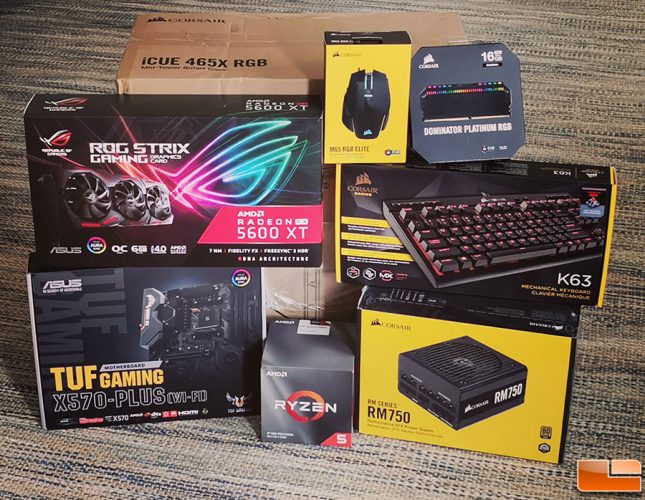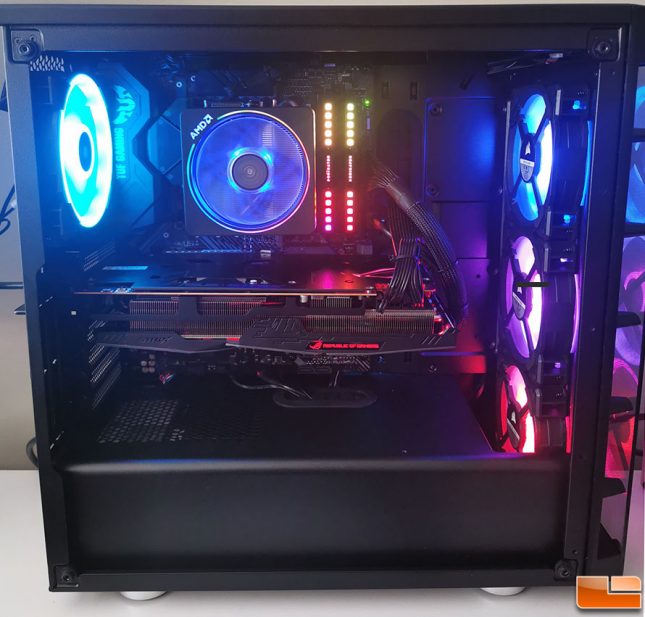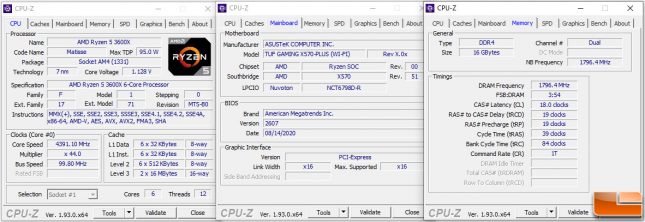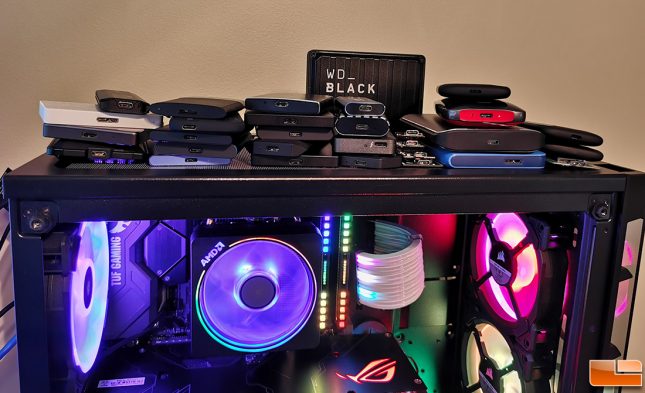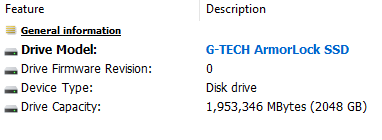G-Technology 2TB ArmorLock Encrypted NVMe SSD Review
The SSD Benchmark Test System
Before we look at the numbers, lets take a brief look at the test system that was used!
We are using an AMD X570 platform to test storage drives and custom built a system that we consider mainstream for consumers. The goal here is to have a system that relates to the average Do-It-Yourself (DIY) builder, gamer or enthusiast as we want the benchmark results to mean something. To power the system we picked the AMD Ryzen 5 3600X 6-core, 12-thread processor as it along with the Ryzen 5 3600 are hands down two of the best selling 3rd Gen Ryzen CPUs. The AMD Ryzen 5 3600X runs $209.99 shipped and the Ryzen 5 3600 is $179.99 shipped. We went with the ASUS TUF Gaming X570-Plus (Wi-Fi) motherboard ($186.93 shipped) and the ASUS ROG STRIX Gaming Radeon RX 5600 XT graphics card ($339.99 shipped). DRAM needs are fulfilled by a 16GB DDR4-3600 kit of Corsair Dominator Platinum RGB memory ($159.99 shipped) and a Corsair RM750 power supply ($119.99 shipped) powers the system. All that was placed into the Corsair iCUE 465X RGB Black case ($149.99 shipped) without issue. We went with the compact Corsair K63 mechanical keyboard ($77.99 shipped) to keep the lab bench as open as possible and the M65 RGB Elite gaming mouse ($49.99 shipped).
The total build cost is around $1,250 and that seems like a fair price for a system of this caliber and it should also look good thanks to RGB everything.
A clean install of Windows 10 Pro v2004 (build 19041.423) was installed from an ISO. The ASUS TUF Gaming X570-Plus (Wi-Fi) motherboard was running UEFI 2607 (AGESA combo V2 PI 1.0.8.0) and the DRAM was set to 3600 MHz with CL18 timings. The Infinity Fabric clock speed (FCLK) is configurable on this platform and directly relates to the memory clock (MCLK), so it was set to run a 1:1 speeds or 1800 MHz in this situation. All testing was done on the desktop with Windows run in high performance mode.
Here is a quick look at the CPU-Z settings that show the CPU, mainboard and memory details for those that are curious how the system was setup and what was run.
Legit Reviews has spent hundreds of hours benchmarking portable SSDs on this system and have tested over 30 different models on this system.
CrystalDiskInfo Readout:
We normally show CrystalDiskInfo drive details here, but the ArmorLock doesn’t show up after being unlocked on that utility. We tried other utilities, but the information given is extremely limited and only shows the drive capacity.
Let’s have a look at the performance!

